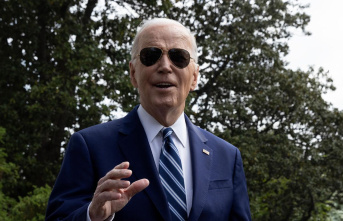WASHINGTON -- For the third time this year, Senate Democrats on Wednesday tried to pass sweeping elections legislation that they tout as a powerful counterweight to new voting restrictions sweeping conservative-controlled states.
They were again blocked by the Republicans.
However, in spite of the continuing impasse, Democrats appear to be making progress in their efforts to reach consensus on Senate procedural rules. This is a crucial step that could enable them to force transformative legislation through this narrowly divided chamber.
Maine Independent Senator Angus King recently relaxed his opposition to the filibuster rules being changed. This creates a threshold of 60 votes for legislation to pass.
King stated, "I've concluded democracy is more important than any Senate rules," and acknowledged that weakening filibuster could be a "double-edged blade" under a Republican majority.
The Democrats face long odds of passing the bill, now called the Freedom Vote Act. Senate Minority Leader Mitch McConnell (R-Ky.), criticized Wednesday for being an "election takeover scheme" by the federal government. But, the Senate Democrats' softening of King's position on the filibuster is a step in the right direction as they try to persuade others in their caucus to vote for a rule change.
Senator Majority Leader Chuck Schumer, who was elected as Senate Majority Leader, invoked the Reconstruction era that followed the Civil War and praised the Northern senators for "going it alone", when faced with "minority obstruction."
Schumer, D.N.Y. said that members of the body are now faced with a choice. They can either watch as our democracy crumbles before their very eyes or they can just sit back and watch.
In the aftermath of the Jan. 6, Capitol attack, the Democrats' voting bill was introduced for the first time in March. It quickly passed the House at a time when Republican-controlled legislatures -- many inspired by Donald Trump's false claims of a stolen 2020 election -- were advancing restrictions in the name of election security that will make it harder to vote and could make the administration of the elections more subject to partisan interference.
Trump's claims of election corruption were strongly rejected by the courts, state officials who certified them and his attorney general.
However, initial optimism about the bill passing the Senate quickly waned after several members from the Democratic caucus including Kyrsten Sinema, Joe Manchin, West Virginia and King made it clear that they were hesitant to alter the filibuster rules. Manchin, who stated that any election overhaul requires bipartisan support, sought to amend the voting bill in order to make it more appealing to Republicans.











